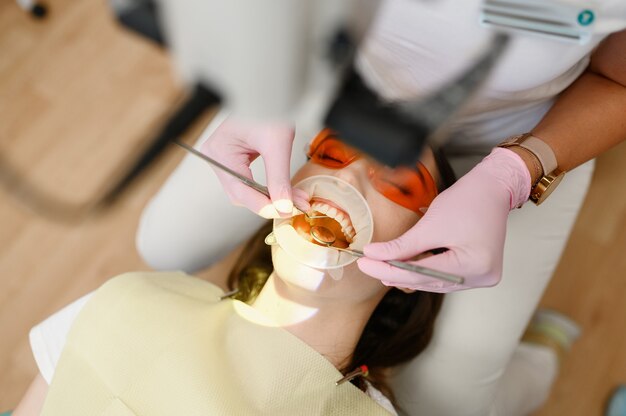Turkey Tooth Extraction | Wisdom Teeth Antalya
Tooth extraction, also known as dental extraction, is the removal of a tooth from its socket in the jawbone. While dentists strive to preserve natural teeth, there are cases when extraction becomes necessary. In this blog, we will explore the reasons for tooth extraction, the process involved, and essential aftercare to promote healing and oral health.

Reasons for Tooth Extraction:
- Severe Decay or Damage: When tooth decay progresses to an advanced stage or when a tooth is extensively damaged by trauma, extraction may be necessary to prevent further infection and pain.
- Impacted Wisdom Teeth: Wisdom teeth, also known as third molars, often do not have enough space to erupt properly. Impacted wisdom teeth can cause pain, infection, and damage to adjacent teeth, necessitating their extraction.
- Orthodontic Treatment: In cases of severe overcrowding or misalignment, tooth extraction may be recommended to create space for orthodontic procedures such as braces.
- Periodontal Disease: Advanced periodontal (gum) disease can cause tooth loosening and bone loss. In some cases, extraction may be necessary to remove severely compromised teeth and prevent the spread of infection.
- Malpositioned Teeth: Teeth that are severely rotated, malformed, or positioned in a way that affects the bite or overall dental alignment may require extraction as part of a comprehensive treatment plan.
The Extraction Process:
- Evaluation and X-rays: Before extraction, your dentist will conduct a thorough examination, which may include dental X-rays, to evaluate the condition of the tooth and its surrounding structures.
- Anesthesia: Local anesthesia is typically administered to numb the area around the tooth being extracted. For more complex cases or anxious patients, general anesthesia or sedation may be used.
- Extraction Techniques: The specific extraction technique depends on the tooth's condition, position, and root canal structure. Simple extractions involve loosening the tooth with a dental tool called an elevator and gently removing it using forceps. Surgical extractions are more complex and involve making an incision in the gum tissue to access the tooth or bone.
- Post-Extraction Care: After the extraction, your dentist will provide instructions for post-operative care. This usually involves biting on a gauze pad to control bleeding, applying ice packs to reduce swelling, taking prescribed pain medications, and adhering to a soft food diet during the initial healing period.
Aftercare and Recovery:
- Pain Management: Take prescribed pain medications as directed, and apply ice packs to the affected area to minimize swelling and discomfort.
- Oral Hygiene: Continue brushing your teeth, but avoid the extraction site for the first 24 hours. Afterward, gently rinse your mouth with warm saltwater to keep the area clean and promote healing.
- Diet and Eating: Stick to a soft food diet for the first few days after extraction. Avoid hot, spicy, or crunchy foods that may irritate the extraction site.
- Avoid Smoking and Drinking through a Straw: Smoking and using a straw can dislodge the blood clot that forms in the socket, leading to a painful condition called dry socket. It's best to avoid these activities during the healing period.
- Follow-up Appointment: Schedule a follow-up appointment with your dentist to monitor the healing process and remove any sutures if necessary.
Conclusion: Tooth extraction is a dental procedure performed in specific situations when preserving a tooth is not possible or beneficial. Whether due to severe decay, impacted wisdom teeth, orthodontic needs, or other factors, tooth extraction can be necessary to protect oral health and alleviate pain. By understanding the extraction process and following proper aftercare instructions, you can promote healing, prevent complications, and maintain good oral health. If you require tooth extraction, it's important to consult with your dentist or oral surgeon, as they will assess your specific dental needs and provide personalized guidance throughout the procedure and recovery period.
Remember, tooth extraction is often followed by tooth replacement options, such as dental implants, bridges, or dentures, to restore function and aesthetics. Your dentist can discuss these options with you to determine the best course of action based on your individual circumstances.
If you experience prolonged bleeding, severe pain, excessive swelling, or any other concerning symptoms after a tooth extraction, it is essential to contact your dental professional for further evaluation and guidance.
Tooth extraction may seem intimidating, but with the advancements in dental techniques and proper aftercare, the process can be smooth and effective. The primary goal is to promote your overall oral health and ensure a comfortable recovery.
In conclusion, tooth extraction is a dental procedure performed in specific circumstances to maintain oral health and alleviate pain. By understanding the reasons for extraction, the process involved, and following appropriate aftercare instructions, you can ensure a smooth recovery and maintain a healthy hollywood smile. Consult with your dental professional for personalized guidance and support throughout the extraction process.
